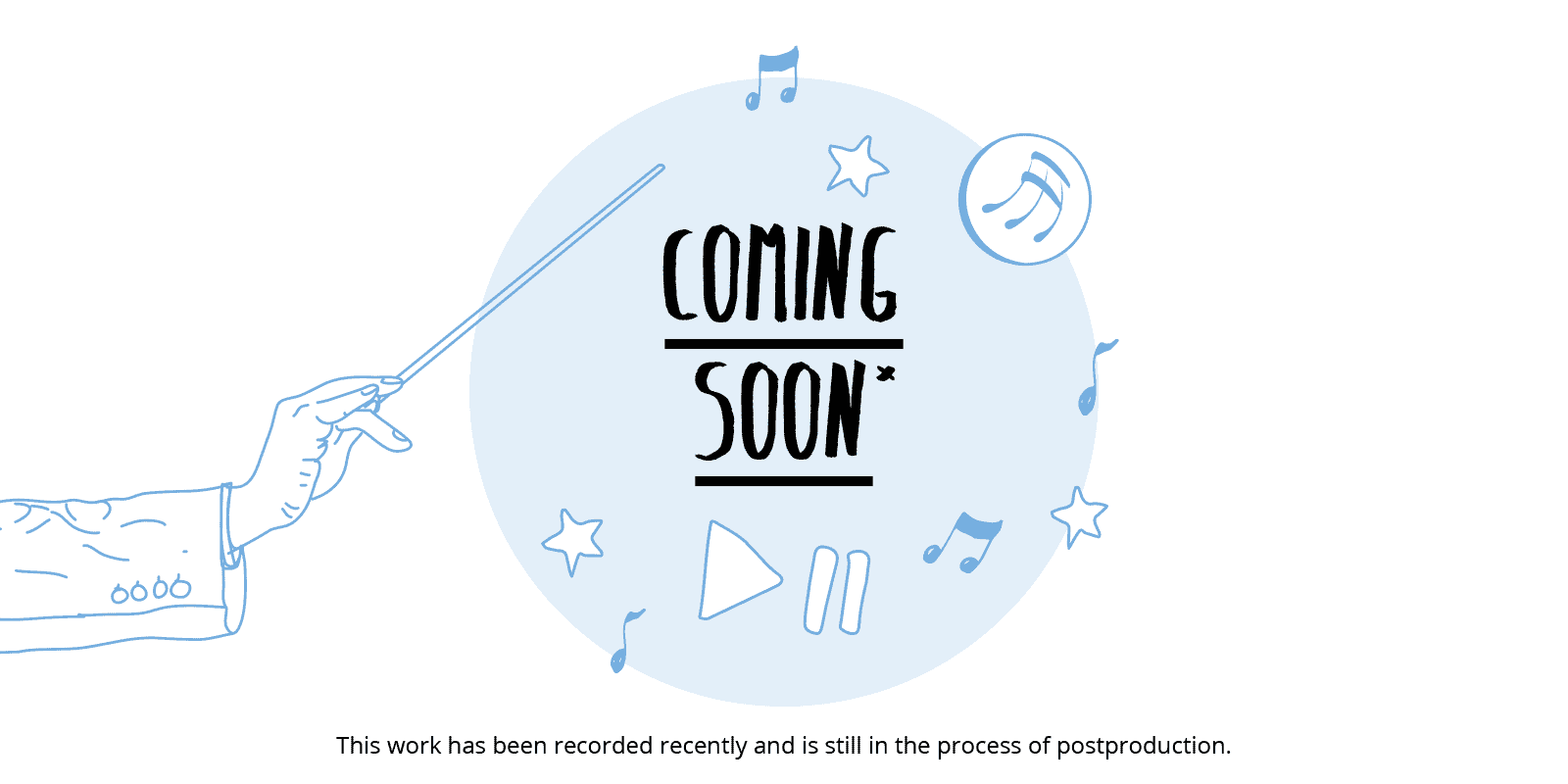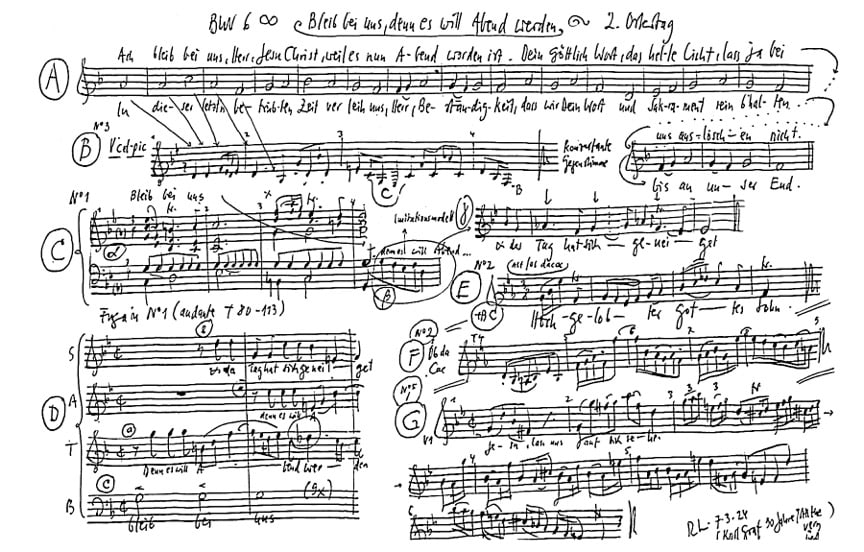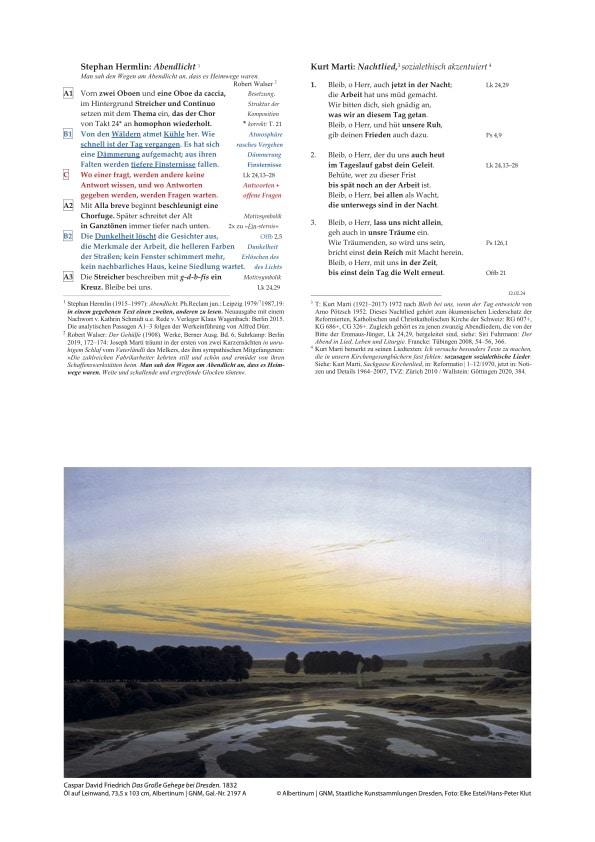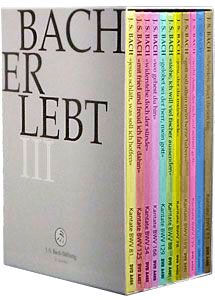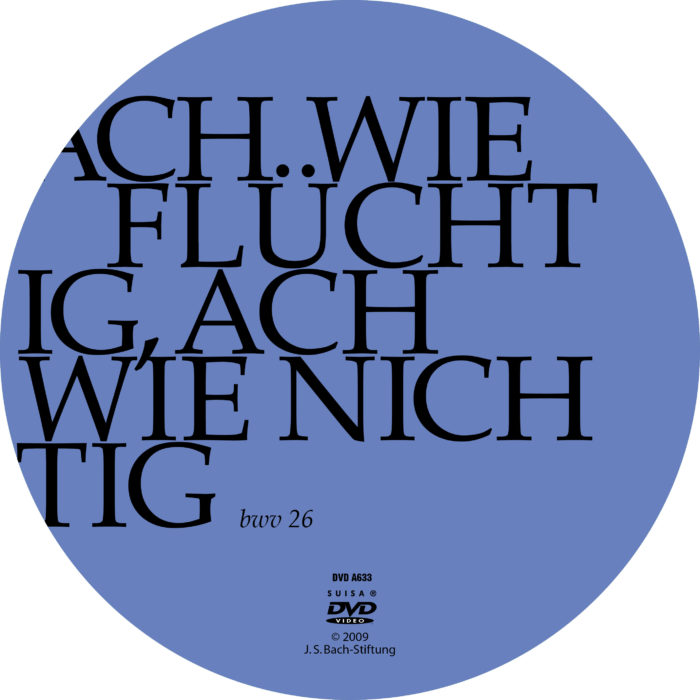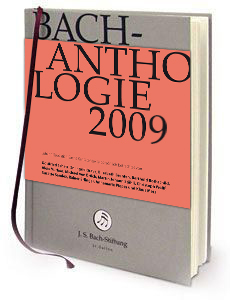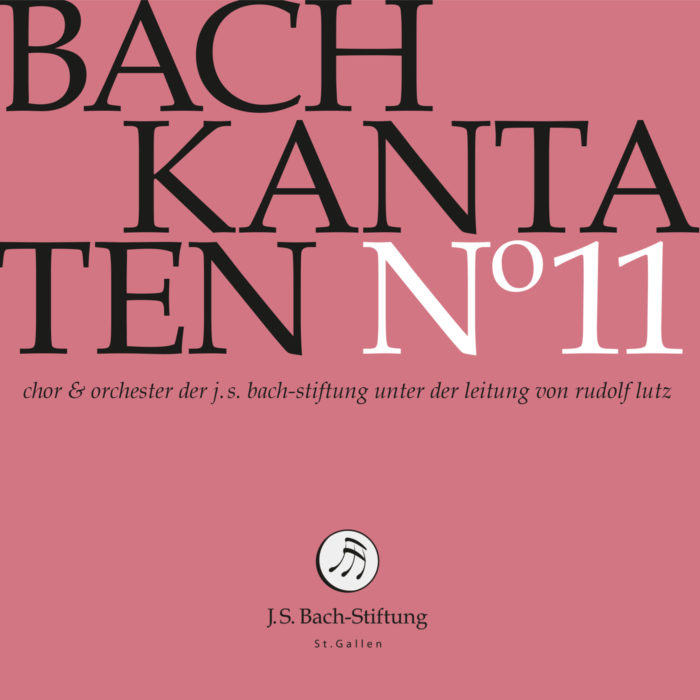Bleib bei uns, denn es will Abend werden
BWV 006 // For the Second Day of Easter
(Bide with us, for it will soon be evening) for soprano, alto, tenor and bass, vocal ensemble, oboe I+II, oboe da caccia, strings and basso continuo
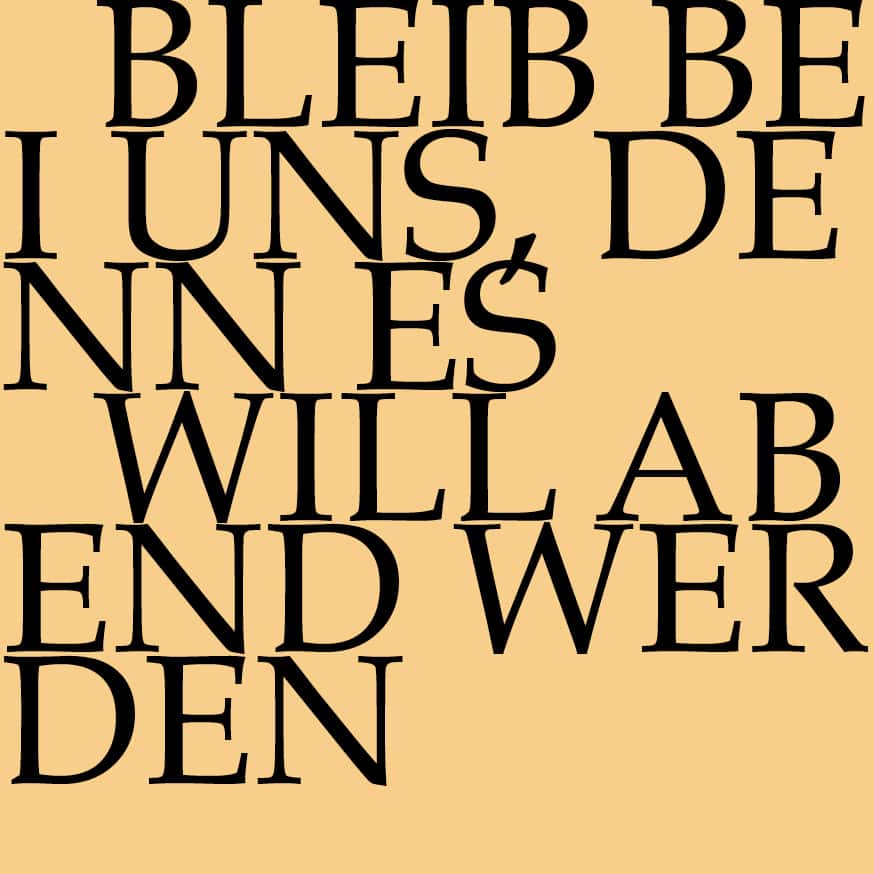
Choir
Soprano
Simone Schwark, Susanne Seitter, Noëmi Sohn Nad, Alexa Vogel, Mirjam Wernli
Alto
Antonia Frey, Laura Kull, Francisca Näf, Alexandra Rawohl, Jan Thomer
Tenor
Marcel Fässler, Manuel Gerber, Joël Morand, Klemens Mölkner
Bass
Fabrice Hayoz, Johannes Hill, Philippe Rayot, Julian Redlin
Orchestra
Conductor
Rudolf Lutz
Violin
Renate Steinmann, Salome Zimmermann, Elisabeth Kohler, Monika Baer, Andrea Brunner, Patricia Do
Viola
Susanna Hefti, Matthias Jäggi, Claire Foltzer
Violoncello
Martin Zeller, Hristo Kouzmanov
Violone
Markus Bernhard
Oboe
Katharina Arfken, Thomas Meraner
Oboe da caccia
Andreas Helm
Bassoon
Susann Landert
Harpsichord
Thomas Leininger
Organ
Nicola Cumer
Musical director & conductor
Rudolf Lutz
Workshop
Participants
Rudolf Lutz, Pfr. Niklaus Peter
Reflective lecture
Speakers
Hans-Jürg Stefan, Klaus Bäumlin
Recording & editing
Recording date
22/003/2024
Recording location
Trogen AR (Switzerland) // Evang. Kirche
Sound engineer
Stefan Ritzenthaler
Producer
Meinrad Keel
Executive producer
Johannes Widmer
Production
GALLUS MEDIA AG, Schweiz
Producer
J.S. Bach-Stiftung, St. Gallen, Schweiz
Librettist
First performance
2 April 1725, Leipzig
Text sources
Christoph Birkmann; Luke 24:29 (movement 1); Nikolaus Selnecker, with verse 1: Philipp Melanchthon, verse 2: Nikolaus Selnecker (movement 3); Martin Luther (movement 6)
Libretto
1. Chor
«Bleib bei uns, denn es will Abend werden, und der Tag hat sich geneiget.»
2. Arie — Alt
Hochgelobter Gottessohn,
laß es dir nicht sein entgegen,
daß wir itzt vor deinem Thron
eine Bitte niederlegen:
Bleib, ach bleibe unser Licht,
weil die Finsternis einbricht.
3. Choral — Sopran
Ach bleib bei uns, Herr Jesu Christ,
weil es nun Abend worden ist,
dein göttlich Wort, das helle Licht,
laß ja bei uns auslöschen nicht.
In dieser letzt’n betrübten Zeit
verleih uns, Herr, Beständigkeit,
daß wir dein Wort und Sacrament
rein b’halten bis an unser End.
4. Rezitativ — Bass
Es hat die Dunkelheit
an vielen Orten überhand genommen.
Woher ist aber dieses kommen?
Bloß daher, weil sowohl die Kleinen als die Großen
nicht in Gerechtigkeit
vor dir, o Gott, gewandelt
und wider ihre Christenpflicht gehandelt.
Drum hast du auch den Leuchter umgestoßen.
5. Arie — Tenor
Jesu, laß uns auf dich sehen,
daß wir nicht
auf den Sündenwegen gehen.
Laß das Licht
deines Worts uns helle scheinen
und dich jederzeit treu meinen.
6. Choral
Beweis dein Macht, Herr Jesu Christ,
der du Herr aller Herren bist;
beschirm dein arme Christenheit,
daß sie dich lob’ in Ewigkeit.
Klaus Bäumlin & Hans-Jürg Stefan in dialog
Klaus Bäumlin:
Dear Bach congregation, before you stand two old men, friends since our student days, connected by singing and making music together. When we agreed to reflect together on the Bach cantata “Abide with us…”, we made this promise with the proviso of the Letter of James: “You do not know what tomorrow will bring, what your life will be like … You should say: If God wills and we live, we will do this and that” (James 4:15).
Two old men, afflicted with all kinds of age-related ailments. For example, I can no longer sing. Dear singers, you can hardly imagine what it’s like when someone for whom singing has been a fundamental element of life since childhood can no longer sing. And you, Hans-Jürg, had to give up your string quartet playing, which you had nurtured for over 70 years, last year due to the late effects of a fall down the stairs. Two old men in the evening of life.
Our cantata is an Easter cantata. However, Easter is not its theme, nor is there an Easter chorale. Instead, the cantata focuses on the disciples’ request to Jesus: “Stay with us, for it is getting dark. What is a simple indication of the time of day in Luke’s story is now interpreted and expanded metaphorically. The simple indication of the time in the story – evening is coming – becomes a general existential statement that concerns every human being.
And so the disciples’ request could expand into a prayer written by Georg Christian Diffenbach in 1853:
Bleibe bei uns, denn es will Abend werden,
und der Tag hat sich geneigt.
Bleibe bei uns und bei deiner ganzen Kirche.
Bleibe bei uns am Abend des Tages,
am Abend des Lebens,
am Abend der Welt.
Bleibe bei uns, wenn über uns kommt
die Nacht der Trübsal und Angst,
die Nacht des Zweifels und der Anfechtung,
die Nacht des bitteren Todes.
Bleibe bei uns und allen deinen Gläubigen
in Zeit und Ewigkeit. (RG 586)
With this expansion, the simple word “evening” is charged with human experiences and emotions, with gloom and fear, with doubt and temptation, with dying and death, even with the end of the world. This prayer of supplication found its place in the liturgy of many evening prayers. The friendly word “evening” becomes cryptic, suddenly becomes a threat and a question. Sleep, the brother of death.
The keyword “evening” is also the theme of our reflection. We are both in the evening of life.
We may all be standing at the end of the world. Bleib bei uns …
Hans-Jürg Stefan:
Herr, bleibe bei uns, denn es will Abend werden we have been singing from the new youth hymnal “Mein Lied” on the evenings of the Young Church since 1953. Since 1962, this canon and Der Mond ist aufgegangen (The moon has risen) have been familiar evening songs in our family, which we used to accompany our four children to sleep. Over the decades, these songs proved to be the “basic nourishment of our trust”. These were later joined by larger musical works in singing weeks and choirs, such as Josef Rheinberger’s six-part “Abendlied” Bleib bei uns, denn es will Abend werden (op. 69, 3) – and even the preparation of our Bach cantata during the Easter singing week 2002 at Leuenberg/BL (conductor: Gothart Stier).
In 1987, on the occasion of a conference of the hymnbook commissioners of the Protestant Churches East & West in the Bonhoeffer House in Berlin Mitte, I discovered the impressive literary depiction of an evening music with our cantata, in: Stephan Hermlin: Abendlicht (19877 ). Even the book cover appears to be charged with a special aura through the reproduction of a German Romantic painting:
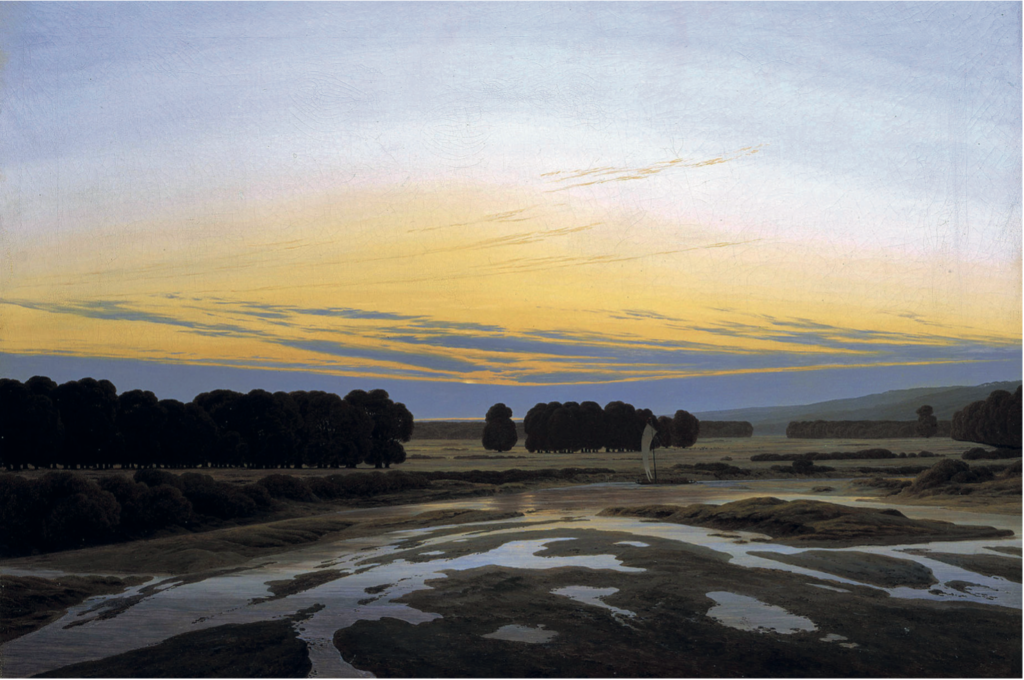
Öl auf Leinwand, 73,5 x 103 cm, Albertinum | GNM, Gal.-Nr. 2197 A
© Albertinum GNM, Staatl. Kunstsammlungen Dresden, Foto: Elke Estel/Hans-Peter Klut
The artist Caspar David Friedrich (1832) conceived the painting, like many other works, with “romantic calculation” (Werner Busch, 2024): Even at first glance, two opposing arched forms (hyperbolas) pointing beyond each other catch the eye: The lower one, bordering the Elbe, encompasses gloomy alluvial land with pools of water. Above it are dark groups of trees. Opposite this earthly area, marked by a gray-blue band of clouds, appears the “arch open to eternity”, as it were, high above the dark forest areas. The evening light shines through torn wisps of cloud in a magnificent range of colors. – Inside the book, the motto from which the book’s title is taken follows on the first flyleaf: Man sah den Wegen am Abendlicht an, dass es Heimwege waren (Robert Walser).[1] Hermlin’s description of Easter evening music with our cantata follows on the second flyleaf:
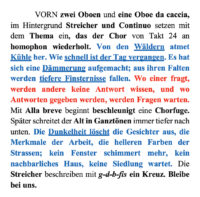
In the sections printed in black, Hermlin follows the commentary by Alfred Dürr (Kassel, 1971). In between, he describes the atmosphere in which the singing and music are performed. This is how he himself read from a young age, in that [quote] “depicted people and actions were not so important to me, but rather an imagined landscape, a time of day, an aura in which people moved and performed their actions. The tendency to place the atmospheric above what was actually reported or, as one could also say, to read a second text in a given text was supported …”[2] This happens along the keywords: Forests – coolness – quickly passed – twilight – deeper darkness – darkness – lights out.
This downward spiral is frightening. It corresponds to the descent of the libretto to the low point in the bass recitative, an intensified quotation from the Book of Revelation (Acts 2:5): There, God threatens the church of Ephesus to overturn the lampstand. In the cantata, the threat has already been carried out: Therefore you have also knocked down the lampstand!
At the center of his collage, Hermlin captures the disciples’ conversation in a single sentence. While they visualize what had happened to Jesus during the past three days in Jerusalem, the stranger enlightens them on the basis of prophetic scriptures. Nevertheless, they do not yet recognize in him the resurrected one: where one asks, others will not know the answer, and where answers are given, questions will be waiting.
Dear Bach congregation, Hermlin’s description of a performance of our cantata ends with the first three words of the opening chorus: Bleib bei uns! The same source (Lk. 24, 29) is the source of the canon already mentioned: Herr, bleibe bei uns, denn es will Abend werden, und der Tag hat sich geneiget.
First we all sing together in unison. Then the female voices develop the canon to three voices:
1st on the podium,
2nd in the nave on the right,
3rd in the nave on the left.
On the 4th cue, the men join in with the 1st verse of Der Mond ist aufgegangen:
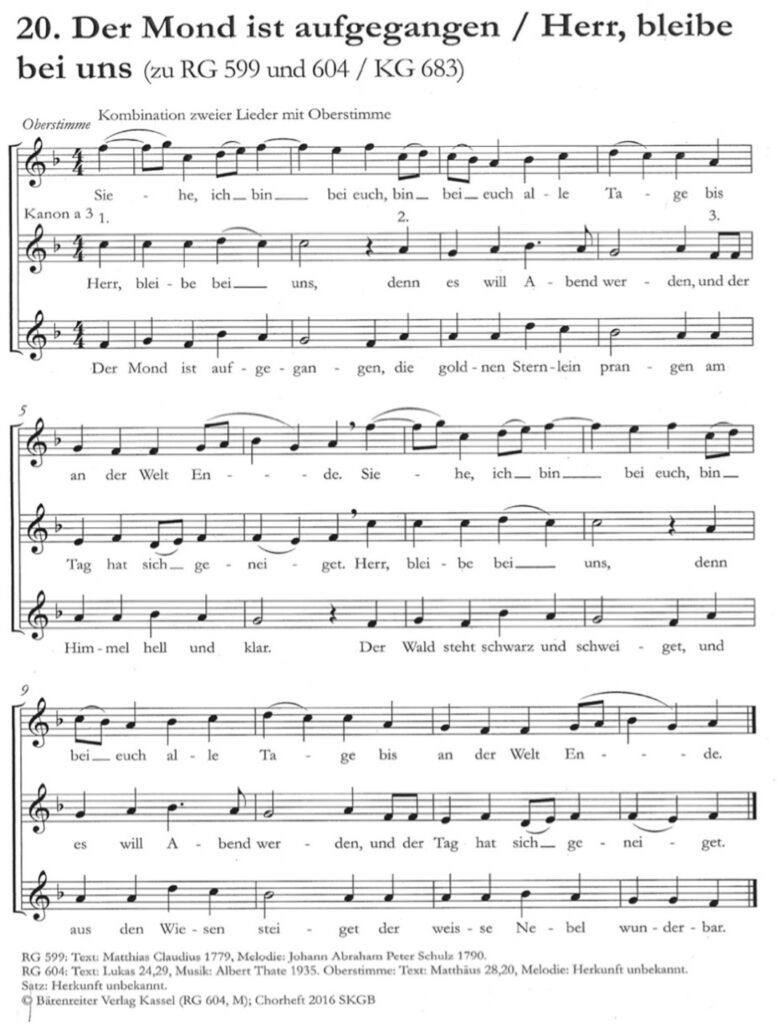
Klaus Bäumlin:
Der Mond ist aufgegangen by Matthias Claudius is my favorite evening song. As one of the very few songs in our hymnal, perhaps the only one, it belongs to the great poetry of world literature. As a child, I used to sing it with my mother before going to sleep. Decades later, I understood that this song does not describe an idyll, that it is not all harmony. There is a foreboding, a sense of sinister abysses and contradictions. It begins quite peacefully: the moon has risen, the golden stars shine bright and clear in the sky. Peace and tranquillity, you might think.
Then it suddenly becomes eerie: the forest is black and silent. White mist rises from the meadows, wonderful, but also somewhat ghostly. What if it reached the sky and obscured the light of the moon and the stars? A shiver comes over you, a slight chill – the evening breeze is cold. A breath of transience wafts over you. We proud children of men are vain poor sinners and don’t know much at all. We spin webs of air and seek many arts and get further from the goal. Losing sight of the goal, not finding the way in the thick fog, getting lost and lost in the black forest, in the dark, in the cold. Nightmares from early childhood emerge. We could be punished. The consequences of our proud arts could drag us into the abyss. And next door, in the quiet room, the sick neighbor sleeps. Will he still see the morning sun? In the moonlight, the world becomes a silent chamber for one night, where you can sleep off the day’s misery and forget it – if we can find sleep. But in the morning, the day’s misery is back, with all its abysses and contradictions, and the world is again full of the noise and misery of humanity. And the silent chamber, does it not also remind us of the last chamber in which we will one day lie and forget everything and fall asleep?
But isn’t there another way to talk and sing about evening and night? As Matthias Claudius wrote: “The golden stars shine bright and clear in the sky; the moon is only half visible, yet it is round and beautiful. There are some things that we can safely laugh at because our eyes cannot see them.
Death can also be gentle and sleep calm and peaceful:
Guten Abend, gut Nacht, / mit Rosen bedacht, /
mit Näglein besteckt, / schlupf unter die Deck: /
/: Morgen früh, wenn Gott will, wirst du wieder geweckt. ://
Guten Abend, gut Nacht, / von Englein bewacht, /
die zeigen im Traum / Christkindeleins Baum: /
Schlaf nun selig und süss, schau im Traum’s Paradies.
There are not only nightmares, but also angelic dreams, dreams of happiness and peace, dreams that visualize beautiful memories and anticipate a bright future.
Hans-Jürg Stefan:
We also encounter dreams and hopeful expectations in Kurt Marti’s Nachtlied Bleib, o Herr, auch jetzt in der Nacht. The poet names the addressee of the night prayer, Christ, twice per verse with the New Testament title: “Lord” (Kyrios).
Marti describes his contributions to the hymnal as “socio-ethical songs” (Notes & Details, 384) – he is concerned with vital social issues: With verse 1, we ask that Christ, like the disciples of Emmaus back then, may also accompany us through the night:
Bleib, o Herr, auch jetzt in der Nacht;
die Arbeit hat uns müd gemacht.
Wir bitten dich, sieh gnädig an,
was wir an diesem Tag getan.
Bleib, o Herr, und hüt unsere Ruh,
gib deinen Frieden auch dazu.
We entrust him with the burdens of our day’s work and everything that remains pending; we also entrust him with our night’s rest and our hope for healing peace.
In verse 2 we pray for those people who work for others at night and for those who are out late:
Bleib, o Herr, der du uns auch heut
im Tageslauf gabst dein Geleit.
Behüte, wer zu dieser Frist
bis spät noch an der Arbeit ist.
Bleib, o Herr, bei allen als Wacht,
die unterwegs sind in der Nacht.
Verse 3 takes up the forward-looking perspective of Psalm 126, asking for the presence of Christ even in our dreams. Here the night song becomes a song of the kingdom of God:
Bleib, o Herr, lass uns nicht allein,
geh auch in unsre Träume ein.
Wie Träumenden, so wird uns sein,
bricht einst dein Reich mit Macht herein.
Bleib, o Herr, mit uns in der Zeit,
bis einst dein Tag die Welt erneut.
Klaus Bäumlin:
We return to the beginning of our cantata with this night song composed from the Emmaus disciples’ request.
In its middle, in No. 3, the soprano voice sings the chorale
Ach bleib bei uns, Herr Jesu Christ.
We conclude our reflection with him:
Ach bleib bei uns, Herr Jesu Christ,
weil es nun Abend worden ist,
dein göttlich Wort, das helle Licht,
lass ja bei uns auslöschen nicht.
Hans-Jürg Stefan:
Bleib, o Herr, lass uns nicht allein,
geh auch in unsre Träume ein …
[1] Robert Walser: Der Gehülfe (1908). Werke, Berner Ausgabe, vol. 6, Suhrkamp: Berlin 2019, 172-174. On the first of two nights in the carcass, Joseph Marti dreams in a restless sleep of the fatherland of the milker, his sympathetic fellow prisoner: “The numerous factory workers returned home from their workshops, quiet and beautiful and tired. You could see from the evening light that they were going home. Wide and resounding and poignant bells rang out.”
[2] Stephan Hermlin (1915-1997): Abendlicht. Ph. Reclam jun.: Leipzig 1979/7 1987, 19th new edition, without reproduction of the painting by C. D. Friedrich, with an afterword by Kathrin Schmidt and a speech by publisher Klaus Wagenbach: Berlin 2015.


